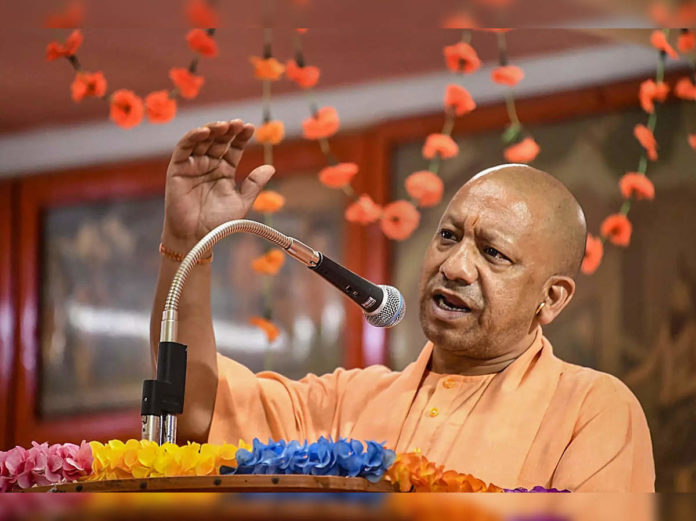Uttar Pradesh Chief Minister Yogi Adityanath on Thursday launched a scathing attack on the Samajwadi Party (SP) following remarks made by its Member of Parliament (MP) RK Chaudhary concerning the Sengol, which Chaudhary referred to as a symbol of monarchy. Adityanath accused the SP of showing disrespect towards Tamil culture and Indian history.
In a social media post, Adityanath stated, “Samajwadi Party has no respect for Indian history or culture. The remarks of their top leaders on the Sengol are condemnable and indicate their ignorance. It also shows INDI Alliance’s hatred to Tamil culture in particular.”
The controversy erupted after Chaudhary called the Sengol “Raja ka danda” and demanded its removal from Parliament. Chaudhary argued that the Constitution, not the Sengol, should symbolize India’s democratic values. “The Constitution is the symbol of democracy. The BJP government, under PM Modi, installed the Sengol in Parliament. ‘Sengol’ means ‘Raj-Dand’ or ‘Raja ka Danda’. After ending the princely order, the country became independent. Will the country be run by ‘Raja ka danda’ or the Constitution? I demand that Sengol be removed from Parliament to save the Constitution,” Chaudhary said.
Adityanath countered this viewpoint by emphasizing the significance of the Sengol. “The Sengol is India’s pride and it is a matter of honour that Hon. PM Shri @narendramodi Ji accorded it the highest respect in the Parliament,” he added.
SP chief Akhilesh Yadav defended Chaudhary’s remarks, suggesting that they were intended to remind Prime Minister Modi of his own actions. “When the Sengol was installed, the PM bowed before it. He might have forgotten this while taking the oath. Maybe our MP’s remark was to remind him of that,” Yadav said.
The opposition INDIA bloc supported the SP’s suggestion to remove the Sengol, with Congress MP Manickam Tagore calling it a “good suggestion.”
The BJP, however, stood firm in its condemnation of the SP’s stance. Party spokesperson Shehzad Poonawalla accused the SP of disrespecting both Indian and Tamil culture. “The Samajwadi Party opposes Sengol in Parliament, calling it ‘Raja ka Dand’. If it was so, why did Jawaharlal Nehru accept it? This shows their mindset. They attack Ramcharitmanas and now Sengol. Does DMK support this insult? They must clarify,” Poonawalla asserted.
The Sengol, historically, is a scepter symbolizing the transfer of power. It holds significant cultural value, particularly in Tamil culture. The Sengol was handed over to India’s first Prime Minister, Jawaharlal Nehru, by a Tamil priest to signify the transfer of power from the British to the Indian people during the independence ceremony in 1947. The act of presenting the Sengol was rooted in the Chola tradition, where it symbolized justice and righteous governance. The installation of the Sengol in Parliament by Prime Minister Narendra Modi was intended to honor this historical and cultural heritage, reaffirming its importance in India’s democratic framework.

